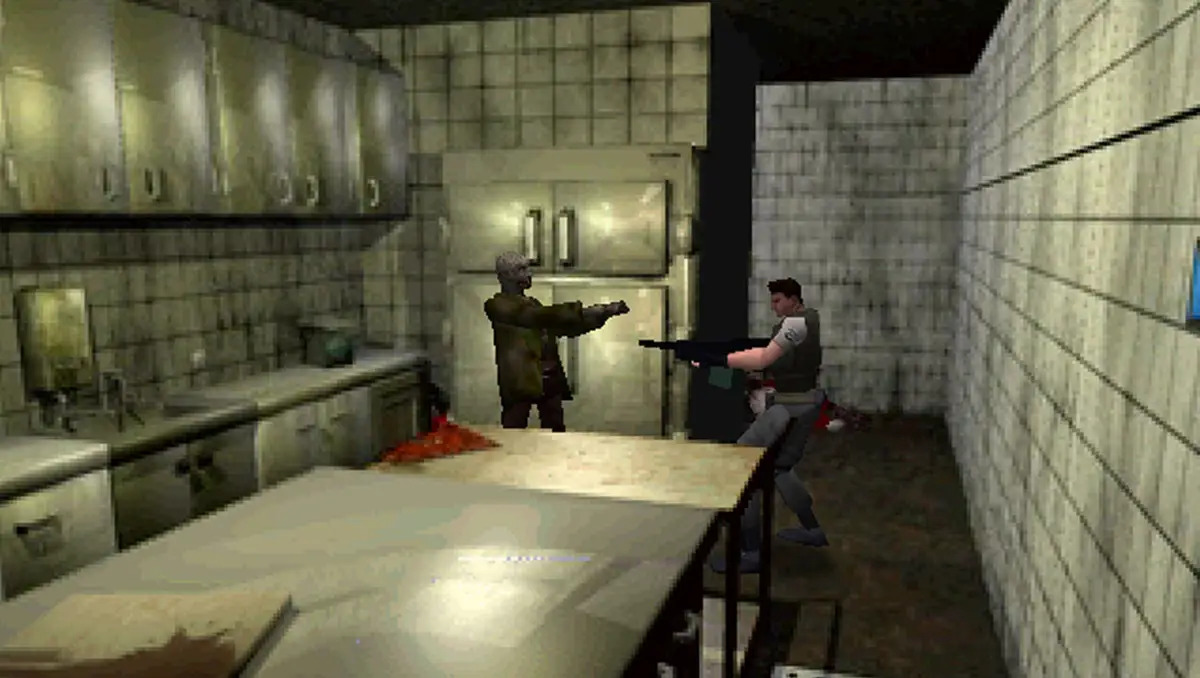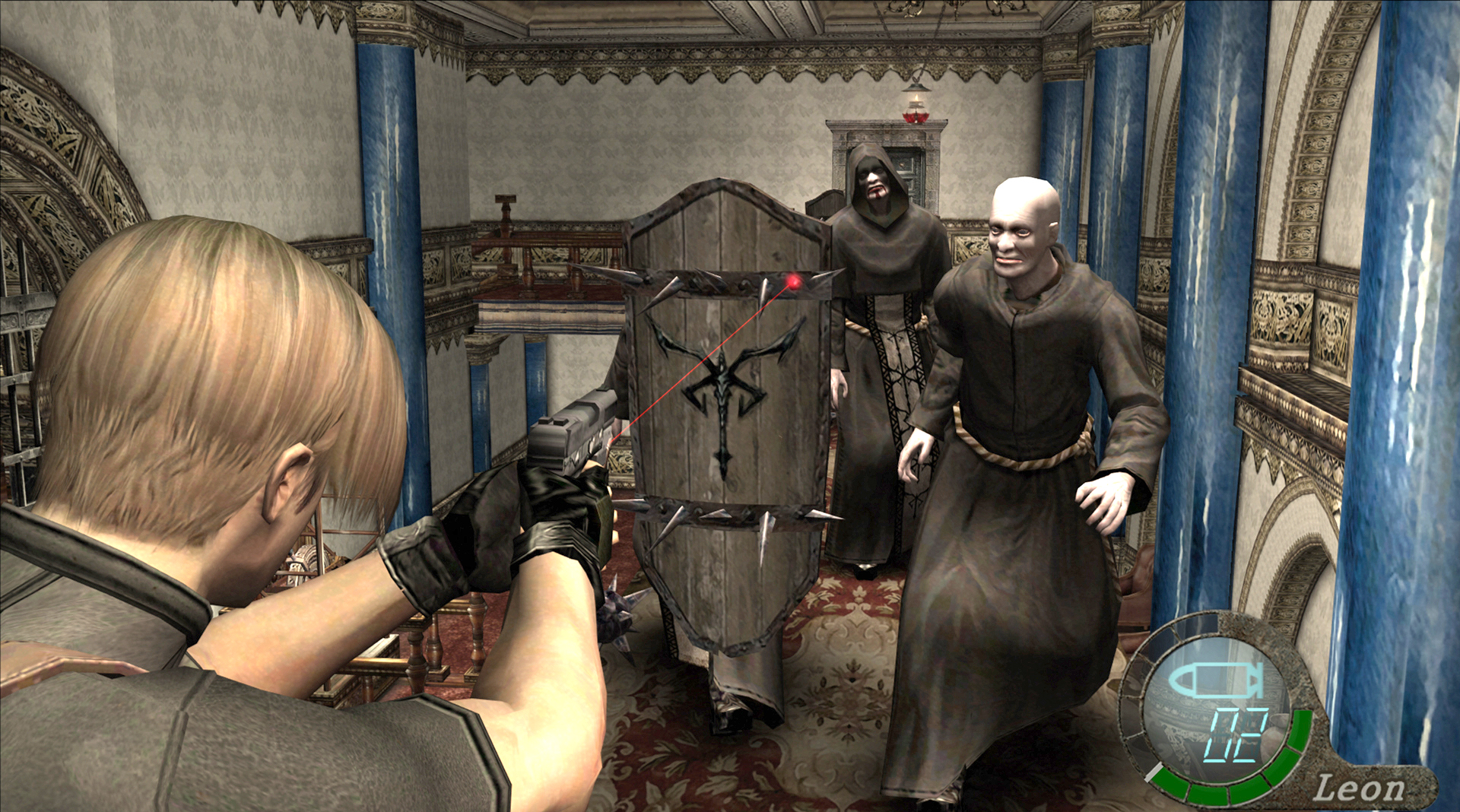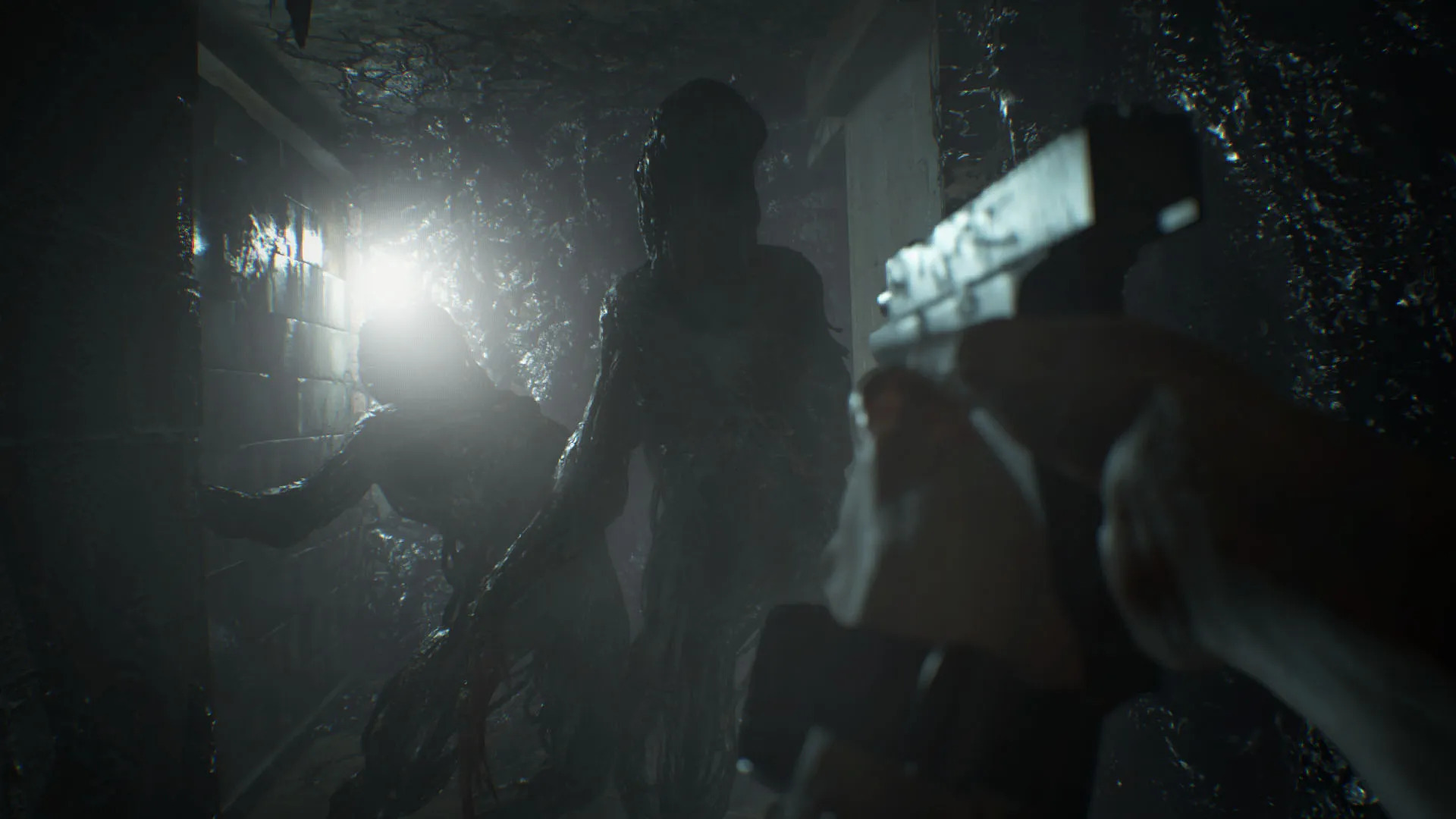Resident Evil
Developed and published by Japanese game company Capcom, Resident Evil is probably the first thing that comes to mind when you think of a horror video game. With over ten main installments and dozens of spin-offs, most people with an interest in video games are likely to have played at least one of them. Each game follows a premise that involves the player character surviving in harsh environments where they must fight off zombies and mutated creatures while searching for limited supplies. Originally a PS1 exclusive, the first game was an immediate hit when it hit store shelves in 1996. It has since become the highest grossing horror franchise in not just video games, but entertainment in general.
The One That Started it All
The first Resident Evil keeps things simple by taking place in one location, known as the Spencer Mansion. The game is presented with cinematic fixed camera angles and players are required to explore the mansion to scavenge for supplies, solve puzzles to progress, and fight off deadly creatures to survive. Even to this day, it is considered one of the most influential video games of all time and is even credited with reviving the zombie genre in pop culture. Once considered a dead genre, many zombie films and shows of the 2000s and beyond have Resident Evil to thank. The huge success of Resident Evil quickly led to two more sequels entering developlement and even an updated remake for the GameCube, all of which also make use of the fixed camera angle perspective. If you ask me, the first Resident Evil is the best one when it comes to good old fashioned scares. This is the game that introduced me to the survival horror genre, and over 20 years later, it's still one of the best out there.

The Revolutionary Classic
Main installments in the franchise went on a 5-year hiatus after the release of Resident Evil 3 in 2000. In 2005, Resident Evil 4 was released on the GameCube. It led to major changes within the franchise, and the video game industry itself. In Resident Evil 4, players take control of special agent Leon Kennedy, sent on a mission to rescue the president’s daughter from a cult in rural Spain. The game changed from the fixed camera angles of prior games to a third person “over-the-shoulder” view. This change in player perspective was such a huge hit that it popularized third person games in general. Games such as Gears of War and The Last of Us were directly influenced by the success of Resident Evil 4. It has a 96/100 on Metacritic, making it the highest rated horror game of all time. Combined with the spooky atmosphere and fun gameplay, this is my personal favorite entry in the series.

A Return to Basics
The success of Resident Evil 4 saw the series shift towards a more action-oriented focus, straying away from its horror roots. Resident Evil 5 in 2009 became the best-selling game in the series at the time, but Resident Evil 6 in 2012 saw the opposite effect and was considered a huge financial failure by Capcom. This led to another hiatus in the series, lasting for another 5 years. The release of Resident Evil 7 in 2017 saw the series return to its horror roots and was considered a soft reboot for the franchise. This game follows brand new protagonist Ethan Winters, who is searching for his missing wife in the rural swamps of Louisiana. Once again, the series sees a new shift in player perspective, changing from a third to a first-person view. This is the best one to play if you are looking for a gross out and violent horror experience. Since the release of Resident Evil 7, the franchise is as popular as it’s ever been. The latest installment in the series, Resident Evil 8, otherwise known as Resident Evil Village, was released in 2021. Starting in 2018, modern remakes of Resident Evil 2, 3, and 4 have been released as well.

Browse the Resident Evil franchise
Thanks to high sales and popularity, every main installment in the Resident Evil series can be easily purchased and played on modern hardware.


